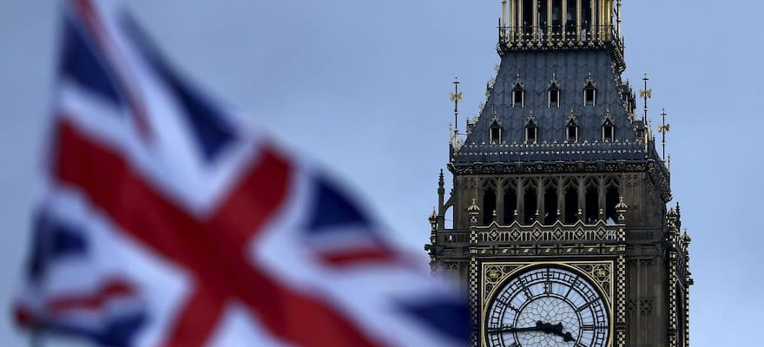What is next for the pound this year?

UK's decision to depart from the EU has contributed to critical effects, both for the currency and the economy as a whole.
What does 2021 bring to the table?
For many years, the British Pound has been trading
with ease on currency markets. UK's decision to leave the EU was crucial
leading to the devaluation of the currency as well as lower exchange rates.
Since June 2016 UK's vote for "Brexit" has brought the country's recession with
the GBP stepping into a period of drastic market and price fluctuations, including
the Sterling's drop against the US Dollar in October 2016 until June 2017 by
-15%, against the Euro by -2% as well as against the Australian and Canadian
Dollar by -2.1% by -2.3% respectively.
By the end of December 2017, the EU and the UK came to an agreement for the
upcoming "divorce". At the time of the deal, GBP's value against the
USD increased by 0.9%, and more than 1% against the EUR.
Over late-spring and summer 2020, the UK and EU conducted a series of
negotiations to finalise the "divorce" deals. During that period until early
September 2020, the GBP/USD rallied by 779 pips and the GBP/EUR dropped by 303
pips.
Now, we're 3 months after the United Kingdom's exit from the EU and concerns
around trading, the stock market and the value of the GBP are still in the
spotlight.
Still, it's impossible to predict the Pound's future, how and if it will
recover. However, there are some key points to keep an eye on, as pointed out
by recent studies that see the "recovery" of the GBP. These include:
1. Bank of England's decision not to cut interest rates even further, nor print
more money.
2. United Kingdom's dealings and negotiations with the European Union regarding
trading (i.e. single-market access without freedom of movement)
3. Companies to continue investing in the UK.
4. No relocation of companies overseas.
5. Demand for the British Pound amongst investors
HSBC forecasts expect the currency to drop even if the UK manages to achieve a
post-Brexit trade deal with the remaining EU countries. However, if a deal is
not agreed HSBC analysts warn
for a massive drop of the currency to approximately 20-25% in the short term,
dragging both the GBP/USD down to 1.10 in the mid-2021 and the GBP/EUR exchange
rate down around 1.09 by mid-2021 where it is also estimated to by the end of
2021. The GBP/USD pair is seen at 1.25 from mid-2021 until the end of the year.
Similarly, some other analysts have predicted that the GBP Vs USD to be
overly bearish, and more specifically, the US Dollar is expected to weaken
under the new US administration.
Citibank's three month forecast sees the GBP/USD at 1.32, and thereafter
at 1.37. A longer-term forecast sees the pair at 1.42.
Furthermore, Scotiabank in Canada noted a neutral trend for GBP/USD, which
looks to swing between 1.33 and 1.34 in the short-term.
French bank Société Générale expects the dollar to weaken, where a Brexit deal
will support the GBP/USD pair as we go along in 2021.
On the contrary, Nomura Investment Bank has forecast a more "bullish" trend for
the Pound-to-Dollar exchange rate. It is expected the pair will be trading at
1.45 by the end of 2021, but at the same time it's not anticipated to trade
above current levels throughout the next few months.
On a more optimistic view, Credit Suisse's view on the 2021 GBP/USD outlook,
sees the pair to move to the 1.50.
As far as the Pound to Euro exchange rate is concerned, NAB is
forecasting the pair to trade around 1.1495 in 2021. Gavin Friend, Senior Market Strategist at NAB in London, supports that the reason
why the GBP is not rallying against the EUR is because of its decision to leave
the EU, thus having a huge impact on the economy.
The UK's independent Office for Budget Responsibility has predicted that the
country is likely to see a 4% decrease in its economic growth, which could have
been avoided if it didn't leave the EU, thus the Pound-to-Euro exchange
rate is forecast to trade at 1.1360.
A foreign exchange strategist at Nomura
supports that the GBP is nowhere near finding support in the short term, yet
with the UK's Covid-19 vaccination schedule this should bring a more optimistic
sentiment in the country's economy. Still, this won't help for the full
recovery due to the massive losses from the previous lockdowns.
For now, the GBP/EUR exchange rate is more likely to remain steady and the
Sterling to be stuck, but if Nomura's expectations come true, then we should
expect a rebound both for cases in the upcoming months, recovering to 1.16.
Well, having all the above forecasts in mind, could investors see the light at
the end of the tunnel? Will there still be some potential trading opportunities
in the UK and these major currency pairs in the near future, or not?
Whatever the answer and your choice is, you can still trade the forex
market as well as some of the most popular stock CFDs with ForexTB with 0% commissions, no deposit fees and powerful WebTrader
or MT4 platforms.
This article was submitted by ForexTB.




